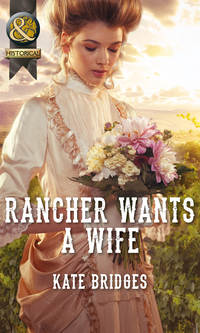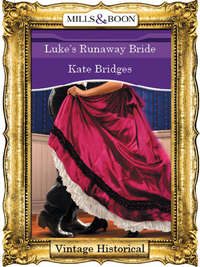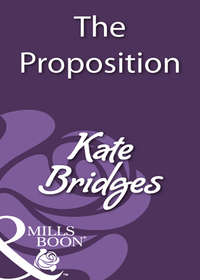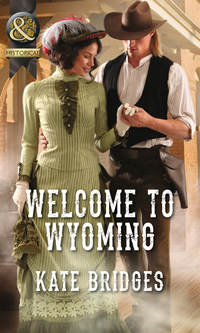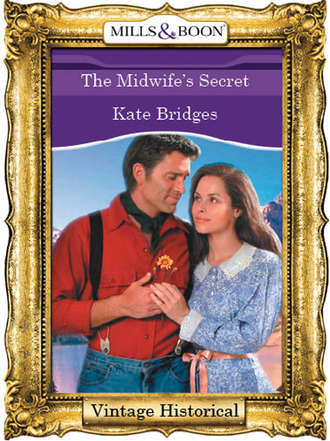
Полная версия
The Midwife's Secret
When the O’Haras left, Tom looked up at the blue sky and removed his hat. His long hair was a rich, raven black. His clean-shaven jaw gleamed bronze in the sun.
“Good morning,” he said again, intimately, addressing only her this time. A corner of his handsome mouth tugged up, almost apologetic.
She swallowed. “Good morning. What brings you here?”
“I’ve got something of yours to return.” The muscles in his shoulders played beneath his shirt as he slid out a square yellow envelope from his leather vest. He offered it to her.
“My deed?”
“That’s right.”
She took it, being very careful not to stand too close. “Thank you.” Flustered, she slid it into her skirt pocket, then tucked her baggy blouse into her narrow waistline. His eyes slowly followed the movements over her body.
When he didn’t say anything more, she pulled in a brisk breath and steadied her nerves. “Well, I best be getting back to my duties. There’s a young couple in town I met yesterday. They’re expecting their first, and I promised I’d stop by.” Later this afternoon, but he didn’t need to know that.
“That would be the tinsmith’s daughter, Fannie.”
“That’s right. Good day.” She turned and walked away.
He sidestepped her and barred her path. Lord, the man was big. He peered at the shack, as if he were searching for something to prolong the conversation. “It’s still lopsided and won’t hold out for another year, but it must have taken you hours to scrub it down.”
She followed his gaze. “It did.” Thinking of the yellow envelope she’d just stuffed into her pocket, Amanda blurted, “I assume you verified my deed?”
His green eyes lit with amber. His profile exuded power. “Yeah.”
She was curious to know what had happened to Mr. Finnigan, but feared mentioning his name might put her own property in jeopardy again, so she let the topic pass.
Her fingers trembled into her apron. “Well, then, I suppose there’s nothing else to say. Thanks for dropping it by.” She turned to go. Tom’s warm hand grabbed her shoulder and spun her back, gently, sending her stomach twisting in a thousand directions. She blinked up at his handsome face, the dashing age lines around his eyes and mouth.
His gaze trailed over her forehead, down her lips and back into her eyes. “You know,” he said with a soft voice, “you’ve got the saddest eyes I’ve ever seen.”
Stumbling out of his grasp, she stammered, “What do you— How could you—”
Quickly stepping away, he played with the brim of his hat. “I’m sorry, it just struck me.”
His comment left her speechless. What a thing to say! She wasn’t sad, she tried her best to be cheerful.
He cleared his throat while she caught her breath, then he scratched the back of his neck. “We got off on the wrong foot, and I’m here to apologize. You’re not making this easy.” He stared off at the mountains. “I was thinking,” he continued, “if you’re still aiming to build your log cabin, I’d like to make a bid.”
Her guard was stronger now. “Why?”
“What sort of question is that? I’m a builder and that’s what I do.”
She stood her ground. “Why do you want to build my cabin? I’m sure there’s other work out there. For that fancy hotel, I imagine. And the others that are going up.”
“I’ve got a large crew, and I’d like to keep them working.” His tone was firm but civil. “Most of the large construction is over, and there’ll be a lull in the summer.”
“I just heard Ellie thank you for giving her husband extra work.”
“He needs it.” His dark brows arched with a challenge.
“No thank you, I don’t think we could work together.” In several long strides she wove her way into the forest, toward the river to haul some water. She had to do something with the extra energy he evoked in her, which he seemed to evoke every time they met. Grabbing the water yoke that lay along the path, she slid the smooth wooden handle across her shoulder blades, allowing the buckets to dangle from the ropes on either end.
“Would you stop running away from me,” he said, following her, causing her to catch her breath again. “Don’t you want to hear my bid?”
“There are two other builders in town, and they’ve already given me their quotes.”
He ducked a tree. “Let’s start over. I didn’t mean to get mad at you in the mill. You happened to walk in while I was getting bad news.”
From Clarissa? she wondered. No, it had started before he’d opened the note from Clarissa.
They reached the bank of the Bow River and stopped for a moment. She slid her yoke and buckets to the ground. The sound of surging water, three hundred feet wide, gushed around them. Cut logs thudded against each other, floating downriver from the lumbering camps, making their journey to Calgary.
When she glanced upriver, she spotted the huge brick-and-limestone facade of the new hotel. Only three short days ago, she was thrilled to have moved to Banff.
The town itself was less than five years old, the population under a thousand. In posters across the prairies, the Canadian Pacific Railway promised that a tourist industry would follow the building of their Banff Springs Hotel. They claimed it would make their railroad self-supporting, give the tourists all the excitement of the wild West without the pesky discomforts and create a spectacular opportunity for anyone wanting to be part of it.
She still wanted to be a part of it. What else would give her life meaning, but to open a midwifery practice and to put to good use the excellent training and experience she had?
“Let’s see, how big do you want your log cabin?” he asked. “Twenty-four by twenty-four? One big room with a stone fireplace?”
Was there any harm in getting his bid? She didn’t have to take it, and maybe then the man would leave. “I’d like to have two spare bedrooms attached, so that would make the overall building twenty by thirty.”
“Two spare rooms? For a future family, I suppose.”
The comment caught her by surprise.
“I mean,” he explained softly, “if you do remarry, and you might, you might need the spare rooms.”
“I’ll be using them to take in homeless children.”
The lines around his eyes deepened with respect. “I see. Unfortunately, Banff does get a few orphans. Mostly because of accidents. Sometimes an avalanche. Or consumption. Or a fire.” He stepped back and seemed to soak her in. “How many windows are there to cut?”
“Four.”
“Porch?”
“I’d like one around the front.”
“Well, that’s an easy estimate. I’d say it’d cost you roughly two hundred and twenty dollars.”
With an exclamation of surprise, she dropped into the soft grass of the riverbank.
“I know I’m under the other two bids. I always am. I can cut and saw lumber cheaper than anyone else in town.”
He was a lot under. Sixty dollars under. A world of difference.
“I paid Mr. Finnigan five hundred dollars for this piece—”
“What? You paid him five hundred for what?”
“For the shack, and the right to the property.”
That, for some reason, seemed to knock the wind out of him. He sank into the grass beside her. He really was surprised by Mr. Finnigan’s sale, wasn’t he? Well, it didn’t matter. The money had still gone into their joint sawmill coffers. And Amanda was sure five hundred dollars didn’t make much of a dent in the thousands of dollars of construction he saw in a year.
Standing up, he shoved his hat back onto his head. As she deliberated what to do, Tom dunked the buckets into the river and hoisted them to his shoulders. He did it with such ease, she wondered what it’d be like to have a man to help her here with the harder, backbreaking work. To spend the evenings together, to call on neighbors, to keep her body warm at night. But then, the last thing she wanted was another man. Some men couldn’t be counted on when a woman really needed them, and she had no desire to find out what kind of man Tom Murdock was.
When she bounded into the clearing, Grandma, in her split skirt, turned down the path on the bicycle. “Honey, I’m back.” Spotting Tom, she added, “I didn’t know we had company.”
“Howdy, ma’am. My name’s Tom Murdock.”
A smooth rider, Grandma gave a little gasp of delight as she dismounted. They gathered around the pounded earth by the logs where they usually lit the fire. With hesitation, Amanda introduced them. “This is my grandmother, Clementine Stewart.”
“Pleased to meet you,” said Grandma, patting her thick gray braids. “But I thought you were too busy to come around.”
“I had a slight change of plans.” He smiled graciously as they shook hands, then glanced at Grandma’s dark clothing.
Grandma explained. “My husband passed away ten months ago. He was the dear fella who trained Amanda here. My poor, dear Scott, he taught this little lady everything she knows about medicine.”
Grandma rambled on, much to Amanda’s dismay. Grandma loved to visit, and if you didn’t watch, she’d spill every secret they had. “He was a doctor, servin’ the poorer folks in town, never insistin’ on payment, but those who could paid mostly with goods. Matter of fact, one of his customers gave him this here bicycle. What was his name? Mr. Withers, that’s right. He had gall bladder problems.”
With a twinkle in his eye, Tom leaned close to Grandma. “He didn’t get it from the bicycle, did he?”
“Heavens, no!” Grandma shrieked with laughter. It had been a while since she’d had visitors, thought Amanda, and she should be around more people, if this is how much enjoyment she was getting out of Tom’s visit.
“My sympathies on your husband, ma’am,” he acknowledged to Grandma, then turned solemnly to face Amanda. “I don’t mean any disrespect, but you said you were widowed, as well. How long ago did your husband pass away?”
Grandma fell into a coughing spell at Amanda’s obvious lie.
Amanda’s heart lurched. The women stared at each other. They signaled wildly behind Tom’s back; Grandma urging her to tell the truth, Amanda adamantly refusing.
“Yes, dear,” Grandma said between coughs, “go on, tell us.”
Amanda clutched her apron. She already knew Grandma’s thoughts on this. That Amanda shouldn’t hide anything from her past. That she should stand up to everyone who asked. Nothin’ to be ashamed of. “It’s difficult for me to talk about, if you don’t mind.”
Glancing toward his mare that was ripping grass by the tree where he’d tied it, Tom tilted his dark head. “I understand.”
“What exactly is so difficult?” Grandma raised her wide gray eyebrows and spoke innocently. “Tell the man what he asked.”
Tom cleared his throat. He looked uncomfortable, getting trapped between the two women. “I don’t mean to intrude.”
Amanda pursed her lips at Grandma. “It’s difficult to talk about the painful things in my past.”
“Well, sometimes, they get less difficult the more you talk about them. Amazin’ things can happen. Sometimes, you can start talking about your widowed past, and before you finish the sentence and you’ve got it all off your chest, you feel like you’re not widowed at all.”
Grandma eyed her. Amanda eyed her back. It was her concern alone. A blunt man such as Tom Murdock wouldn’t understand.
Tom turned to Grandma. “Is that how you feel, ma’am, about being widowed?”
Grandma sputtered. “No.”
Rubbing his smooth jaw, Tom looked more perplexed. “Well, I best be going.”
He was probably leaving, thought Amanda with a twinge of embarrassment, because he thought they were talking in circles. Which they were. Something she and Grandma were good at.
Amanda followed as he walked to his mare.
“Do we have a deal then?” he asked, unhitching the reins from the branch.
“How soon could you start?”
“How does tomorrow morning suit you?”
“How quickly could you get it done?”
“Six weeks.”
“It’s a deal on two conditions.”
Tom groaned. “Go on.”
“Number one. I get the agreement in writing, and receipts for each deposit.”
“A handshake’s not good enough, I see.”
“Number two. For every day earlier that you finish before the six weeks is up, could you take off fifty cents?”
His eyes narrowed. “What do you mean?”
“I mean, I’d like to help with the work. The other two builders agreed, and for each day of labor, I’d be getting paid fifty cents a day. But only if it saves you time, so you’re able to speed along to your next job.”
“How much time could that amount to? You could help with clearing brush, but the other work is too heavy. You might save me two days, so you’d earn…maybe one dollar?” He gazed over the shack. “If you really need—” He caught himself before he finished the insulting comment. “All right. I’ll need a starting deposit of ten percent in the morning. See you bright and early.”
She pulled in a deep sigh of satisfaction. “See you.”
He reached for his saddle horn, about to swing up, but stopped himself. He turned around. “The other two builders didn’t really agree to your help, did they?”
A nervous smile fluttered over her lips. “Not exactly.”
His lips curled as if on the edge of laughter. “Didn’t think so.”
As she turned to leave, he tapped her shoulder, reminding her again how long it’d been since she’d been touched by a man.
“If you don’t mind,” he said, “I still go by a handshake.”
With a rapid thud of her pulse, she pressed her hot, wet palm into his slick, hard grip, trembling at the thought of what tomorrow would bring. What on earth was she agreeing to, with this forceful man?
Chapter Three
Why did Amanda Ryan keep cropping into his mind? The next morning, Tom stood shaving above the washstand, twisting his jaw into the air to scrape beneath it, and while he should’ve been planning ahead to the day’s work, he thought of Amanda’s strength instead. Moving to Banff without a man, caring for her grandmother, hauling her well-worn treasures into the tumbling shack. Not four days in town and she’d already tended to her first two patients, Ellie O’Hara, and the tinsmith’s daughter.
In the barn, while he watered and fed his work horses, he thought of her independence. The sheer physical stamina it required to pedal a bicycle uphill when he was certain no other woman in town even owned a split skirt. Hell, no other woman in town lived alone in the countryside without a man to help her.
And while the early morning sunrise reflected into the sawmill and he listed instructions to his foreman, he thought of her again. He looked beyond her drab clothing, the hidden pile of thick hair, the pale, indoor complexion, and wondered how long ago she’d lost her husband. How had she lost him? Who had been the messenger who’d come to tell her he’d died? Had she wept for days? In whose arms had she sought comfort?
Questions he shouldn’t have been asking of a widow he’d only met.
He should have been thinking about his mortgage payments and his problems with Finnigan and Clarissa. He’d just lost Clarissa and he should’ve been thinking more of her. But then, what else was there to think about? Graham was checking on her in Calgary, and there was nothing Tom could do but wait to hear.
In the meantime, he had a cabin to build.
When he pulled up to Amanda’s shack in his horse and wagon, Wolf wagging his bushy white tail and Donald O’Hara sitting beside him ready to help, she was tossing a shovel of dirt onto the fire. Her hesitant smile brought color to her face and a youthfulness to her appearance.
She was ready to get started on the hard work, plowing ahead with her life, with or without her husband. It filled Tom with a healthy dose of respect.
“Top ’o the mornin’ to ya, ma’am,” said Donald, jumping off the wagon into the spring dew.
“Good morning,” she shouted as Tom hopped off. Wolf bounded through the trees, barking at a groundhog. There were plenty of mountain animals for him to chase, and he gloried in it.
At the sound of their voices, a flock of swallows—hundreds of them—rose from the trees, sailed into the air, stretched their pointed wings and in unison, tilted their bodies into the wind. A magnificent sight.
With a gloved hand, he readjusted his hat and glanced back at the other two. Donald was busy unloading pick axes and shovels. Amanda was cupping a hand over her eyes, gasping in delight at the birds. She looked like a washer woman, bundled in a long wool skirt, with gray collar peeking out of a checkered flannel shirt—obviously a man’s.
Her late husband’s? Her late grandfather’s? Something about her expression held Tom’s attention. Her oval face was pale but proud, her nose straight, her curved, parted lips turned upward. When she turned back and caught his eye, he noticed again the sky-blue clarity of her eyes, and the sadness trapped there. What was she so sad about?
Why should it interest him so much? He averted his gaze and got to work. It was getting warm and he removed his tan suede coat. The sheepskin collar and lining might be necessary during the nightly freezes and morning chill, but not in the soaring sixties and low seventies of the day.
“I’d like it built right over here.” She indicated the top of the property, at the edge of the one-hundred-foot clearing. Jagged mountains framed her intriguing silhouette.
He sauntered to where she stood and braced his hands on his hips. “It’s a good location. Rain will drain down to the river, so the cabin floor will remain dry. It’s close to the road for safety and convenience. And if we clear the six trees to the Bow River, you’ll have an unobstructed view of the water.”
He almost groaned as he said it, knowing at one time he and his father had planned a similar location. Pa no longer remembered. And as for Tom, well, he’d buy himself another pretty—prettier—piece of property.
Amanda gave such a huge sigh of contentment, his eyes followed the movement of her breathing down to her chest. A nicely rounded swell that she was hiding beneath shapeless clothing. He muttered to himself and glanced away.
After smearing the stinky concoction Amanda had given them on their skin for protection against the blackflies, Tom grabbed the two-man saw.
“Let’s start with the big cedar.” He indicated to Donald. Although Donald was a good ten inches shorter, he was a muscular man who walked with a spring in his step and who easily took direction.
Amanda pulled on her leather gloves and Tom moaned. So she was serious about helping. Glancing up, he caught Grandma exiting the shack, dressed in a workman’s shirt tucked over her dark dress. A quake of alarm bounced through him. Both of them planned on helping? It wasn’t women’s work, not even for younger Amanda, but certainly not a woman as old as Grandma.
Donald stopped. “Sweet Jesus O’Grady,” he muttered. “You’re hirin’ women now, are ya?”
“It’s not my idea,” Tom declared.
“And a good mornin’ to you, too,” bellowed Grandma in good humor. “You can both close your mouths now.”
How old must she be? Tom wondered.
“Sixty-two, since you’re lookin’ at me like that. But I’m not a weak old woman. I was splittin’ logs and cordin’ wood long before you arrived in your mama’s cabbage patch.”
“Don’t worry about us.” Amanda brought out her own shovel. “We’ll clear the raspberry bushes and the juniper shrubs. We promise we’ll stay out of your hair.” She lifted her chin and met his gaze.
Was he supposed to allow women to help him? He was ashamed to see them work so hard. They should be sitting out in the sun and knitting, or mending clothing. But as much as he ached to have the final word and say no, a deal was a deal.
So while the men cleared the clump of green cedars, the women transplanted raspberry bushes to the far side of the shack. Amanda seemed to take pleasure in the company of Wolf, scratching behind his furry pointed ears and patting his luxurious double coat.
“Why, you’ve got two different colored eyes,” Tom heard her murmur to the dog. “One blue, one brown.”
Near lunchtime, Grandma waddled off to the privy. Amanda slid off her gloves and wiped the perspiration from her forehead. “It’s time for lunch. I’ve got some stew.”
Just then, Ellie strolled around the corner with a picnic basket, obviously thinking of lunch, too. “The children have eaten and the three oldest girls are hangin’ the laundry. I thought we might go fer a picnic by the river.”
Tom stumbled forward. For cryin’ out loud, this wasn’t a social call. This was difficult work, and if he accepted one invitation, the woman might appear every day. “I don’t think so. I brought an apple and a slice of ham, and I’ll enjoy sitting under that tree. Alone. You go ahead with Donald.”
Amanda wrung her hands into her shirt and tried to slide out of the invitation, too.
Ellie insisted. “I’m not taking no fer an answer. I’ve been cookin’ fer the last hour. Fresh bread. Fried-egg sandwiches and pickled peppers.” Spotting Amanda’s grandmother as she came out of the privy, she called out “You’ll join us, won’t you, Miss Clementine?”
Miss Clementine waved them off with a plump arm, like a queen waving from a balcony. “Go on without me. I’ll have my tea and toast sitting on a chair, thank you.”
It seemed there was no way out. But tomorrow, he vowed as he trudged through the aspens to the river, he’d come more prepared to say no. Around women, you always had to stay on your toes. How much time would this take?
Amanda found a seat on the other side of Ellie, by a large boulder heating in the sun. In the distance, the Banff Springs Hotel towered over the pines. While the women discussed babies and delivery, the men grunted a few words at each other about the snow melt. Tom was eating as fast as he could.
Amanda ate only half of his quantity. Her delicate lashes flashed over high cheekbones as she sipped cold tea. When Donald and Ellie nuzzled closer together, discussing something intimate, the silence between Amanda and Tom grew uncomfortable.
How did he get trapped in this awkward situation?
Finally, staring up the mountainside at the turrets and balconies of the big hotel, Amanda broke it. “Imagine being so wealthy you could afford to travel simply for the pleasure.”
Tom leaned back on the hard log, his long legs crossed in front of him. “I can’t imagine it myself. Starting at three dollars and fifty cents a room.”
Amanda choked on her drink. “Every night?”
“Ridiculous what tourists will pay, isn’t it?”
“Who are they, the people who come here?”
“Wealthy from the east. Some from the States. Most from England and the rest of Europe. Last year, we got almost three thousand visitors. This year, we expect five thousand. During the next three weeks, guests will be trickling into the big hotel. Hundreds of them, eventually, to fill the two hundred and fifty rooms. Some of the other boarding houses are full already. New restaurants are being built.”
He gazed at the huge monument, designed after a Scottish baronial castle. “They’re folks who want to dip their bodies in hot springs and explore uncharted mountains. Mountaineers, they call them in Switzerland. Only five miles on either side of this railroad has been surveyed, the rest is waiting for human contact. Have you ever been on top of a mountain?”
Their breathing came in unison. “No.”
“You should. It’s pretty.” He couldn’t miss the feminine, musky smell of her. “Have you ever tried the hot springs?”
She lowered her tin cup. “No,” she whispered. “It appears I haven’t done much.”
“The Cave and Basin have cabins set up, one for men and one for women.” He studied her. Clarissa had done it all—hiking, soaking in the hot springs, packing trails, fishing, hunting, ice-boat sailing in the winter. What would it be like to take Amanda to the springs? He was certain she’d be shy to remove her clothing, even if she were only surrounded by other women. Unlike Clarissa. “Did you know they accidentally built the hotel backward?”
She bit her lip. “Now you’re teasing.”




